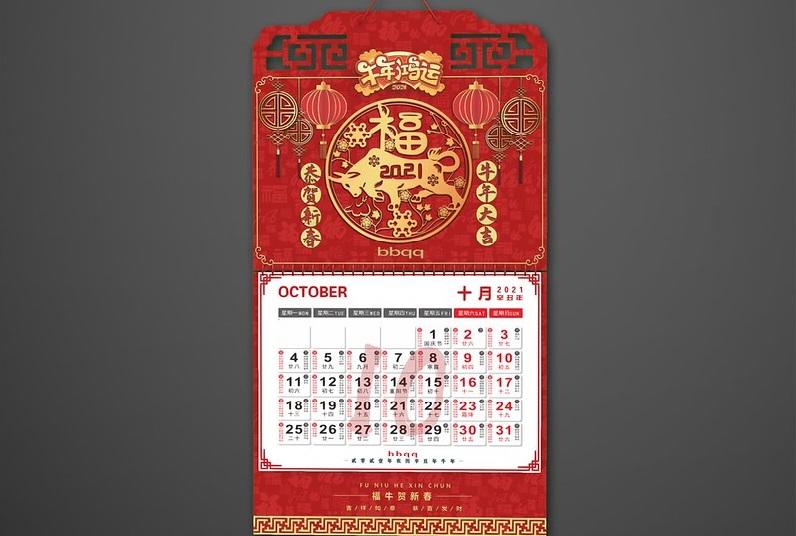From stories about Bixia (the Chinese God of fertility) to tales of Caishen (the Chinese God of wealth), ancient mythology from China has been passed down from one generation to the next. China too has its own ancient China mythology which refers to a collection of tales as well as myths that details the creation of the Chinese state and the way Chinese culture was passed down from one generation to the next generation.
Certain ancient Chinese mythology has been saved by Daoists who even drew to illustrate these Chinese myths. Chinese myths have been preserved so well that everything from the Chinese New Year to the Lantern Festival that takes place two weeks after the Chinese New Year is rooted in Chinese mythology.
It is important to find out more about ancient China mythology because it paves the way for us to understand some Chinese practices, customs, and cultural traditions that are still effective today.
If you want to understand the very essence of the tradition of storytelling in China, you ought to take a look at What is Chinese Mythology and look at some fascinating Chinese legends worth knowing.
Not only do we know that Chinese mythology is important for passing down traditions to future generations, but we realise that learning more about Chinese culture is important for learning languages such as Mandarin or Cantonese. To be fully informed about your Chinese culture, you have to be well-versed in terms of traditions, myths, and beliefs of a country.
Now that you understand the essence of Chinese mythology, we can look at some ancient Chinese myths.
Want to give private lessons?
Join the Superprof community and share your knowledge with inquiring and motivated students.
Ancient Chinese Myths
Feel free to explore the enchanting world of Chinese folklore in order to learn folk tales and facts about ancient Chinese mythology that may fascinate and excite you.
It is not easy to determine which Chinese myths are true and untrue. It is also quite a daunting task to distinguish between the ancient aspects of a tale and more modern features of the myth.
In most Chinese myths, however, you will find fascinating facts that discuss how ordinary people overcame adversities. While the trend of most myths is to express how Chinese people can overcome struggles, some mythology expresses beliefs about deities, and some expresses the core Chinese beliefs.
In fact, one interesting Chinese myth is that of Sun Wukong, a naughty monkey who journeys to the West. The monkey is extremely mischievous and aims to take over of the world. It takes a lot for Buddha to tame the monkey and all the efforts on Buddha's part doesn't go in vain as the monkey becomes a loyal companion to Monk Xuan Zang when he journeys from China to India.
All pilgrimage mythology similar to that of Sun Wukong focused on introducing the religion of Buddhism and portraying how Buddhism flourished all throughout China.
While most Chinese myths made religion a focal point, there were some myths focused on painting deities in a positive light. One such myth that shows the beauty of the deity is the one set in Hangzhou that is famous for its lake. The white snake lived in a lake and had the magical power to turn into a human form. The snake falls in love with the scholar Xu Xuan and after the couple overcomes many difficulties, the Gods bless their union.
Chinese Creation Myths
In the beginning, there was an enormous egg containing chaos. On the inside, the chaos raged on and on- both Ying and Yang were mixed together. Finally, the egg burst open and out leaped the giant dragon... That is how most Chinese creation myths begin.
Chinese creation myths or cosmogonic myths as it is often called details the narrative of how the world and all inhabiting it originated. Everything including water and how water came to be is considered in these myths.

According to Chinese creation myths:
- Pangu (Panku) creates the world
- Nuwa creates people
- Yu rebuilds the earth
- Fushi teaches people.
When exploring Chinese creation mythology, we need to explore how China created their calendar.
China has its own system of keeping dates, which was established during the Eastern Zhou dynasty (771-476BC). After the fall of the Qing dynasty in 1912, China adopted the calendar that we all use but it never really gained any traction until October 1st, 1949, when Mao Zedong declared that that date should be noted on the Gregorian calendar.
That date marks the founding of the People's Republic of China. It is also the date of the Chinese call Golden Week, the country's second peak travel time. The Chinese calendar itself is filled with stories of entrancing beasts that introduce each lunar cycle with their unique characteristics.
According to Chinese mythology that has been around for many years, all of one's fortune depends on where they land on the lunar calendar. People make important decisions such as when to have a baby and who to marry based on where things land on the lunar calendar. A fire Tiger would never consider marrying a water Snake or an earth Monkey due to the elements and the animals being incompatible.
There's plenty of information on the zodiac animals and how the Jade Emperor chose these zodiac animals. It is hard to explore everything about the Chinese creation mythology in greater depth as there are so many interesting aspects of Chinese mythology to needs to be discovered to fully understand everything about how the Chinese religion or calendar came to be decided. However, we have to admit that the Chinese tales and the animals as well as the gods and goddesses behind these celebrations and stories are fascinating.
There is a story behind everything including why red and yellow lanterns are hung up at New Year.

Chinese Myths and Tales About What is Celebrated During Chinese Festivals
Although we cannot tell how certain myths came to be or who started sharing the myth, there are some reasons that have been passed down as to why certain Chinese festivals are celebrated. Take a look at some festivals and why they get celebrated.
Lunar New Year
According to myth, the beast Nian always appeared during Spring Festival to eat the villagers and their children. One year, the villagers decided they would hide in the hills on the Year's eve. Just as they were leaving town, an old man appeared and told them he would be able to beat the Nian. Upon arriving back in the village, the very next day, they surprisingly found the old man alive and their village intact. The old man had knowledge that the Nian was afraid of loud noises and hated the colours red and yellow. Thus, he draped the town in yellow and red, and set off firecrackers.
As a result of this belief, the Chinese New Year is celebrated in a similar fashion every year. The Lunar New Year is also remembered as the day that China's most important emperors, Yao, ascended to the throne.
Blue Dragon Festival
According to ancient Chinese myth, the dragon is a deity that is in control of the rain. The Blue Dragon Festival signifies the Dragon Raising its Head and signaling the rainy season that will lead to plant growth. Tu Di is also the deity remembered during the Blue Dragon Festival.
Qi Xi Festival

Qi Xi is the Chinese festival that remembers the star-crossed lovers the Chinese goddess of weaving named Zhi Nu and Chih Nu. The lovers' love was forbidden so they were condemned to live apart, one on either side of the Silver River.
A flock of magpies felt sorry for them. For one night each year, they form a bridge across the river so that the lovers may meet. Qi Xi is a festival that is somewhat like a Chinese Valentine's Day.
The reason as to why certain Chinese festivals are celebrated are interesting, but so too are stories about the Chinese Gods. Learn more about all of the gods in China's heaven.
Popular Chinese Myths
The Chinese people have many traditions, lots of deities and gods, and a complex belief system that touches on every aspect of daily living.
Everything including how names are selected for Chinese children are based on Chinese myths. Popular Chinese myths state that family names such as Wang, Shen, Li, and Song all have important meanings. Wang and Song translate to 'king' and represent the Song dynasty, respectively. Li, meaning 'plum' was such an important staple crop that ancient plums were found buried with past emperors.
So, whereas we get our names from our professions, locations, and lineage, Chinese names are also derived from their mythology.
In fact, as per traditions, the elders of the family are given the privilege of naming new family members. While nowadays Chinese children's names are often given by parents themselves, they still consult popular names that often include references to jade (yu), heaven (tian), dragon (long) and star (xing).
Chinese history and folk tales also affect every aspect of human life in China. Chinese people are more inclined to respect their values and beliefs simply because these customs are interwoven into the fabric of their everyday life.
Perhaps after reading some Chinese mythology and all about Chinese mythology, you will get a better understanding of why the Chinese people believe what they believe and act as they do.
With certainty we can say that ancient Chinese mythology is seriously an interesting topic to start a discussion about. Feel free to share your best Chinese myths with us as well.
Want to give private lessons?
Join the Superprof community and share your knowledge with inquiring and motivated students.
Summarise with AI





